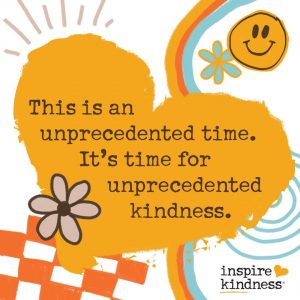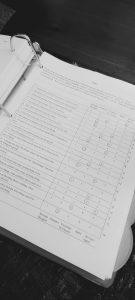Assignment Takeaway
ATA 5

https://images.app.goo.gl/PJ3W2qD79XPAbBMD9
This assignment proved to be a bit more difficult than I had anticipated due to the current restrictions and limited outings or engagement with the public. Something as simple as leaving extra coupons for another shopper doesn’t require personal contact or work. The negative effects of something such as a pandemic causes financial hardship and unrest so any amount of positivity such as a random act of kindness goes a long way. I wasn’t able to see the reactions of all of the people due to obvious reasons however I felt even more gratified given the circumstances and is something that I plan to continue doing whenever possible.
ATA 4
 The Styles of Love Questionnaire (Hendrick & Hendrick, 1986) explored the six different types of love; Eros (romantic, passionate love), Ludus (manipulative, game-playing love), Storge (friendship type love), Pragma (logical, “shopping-list” love), Mania (possessive, dependent love) and Agape (selfless, all-giving love). My fiancé and I completed the exercise and compared our results with the provided norms and felt they were relatively accurate representations both independently and of our relationship. We both scored high in Eros, Storge and Agape and low in Ludus which definitely describes and aligns with our relationship foundation of friendship that turned romantic, selfless and nondemanding. According to Sternberg’s Triangular Theory of Love our relationship would be defined as consummate love that encompasses all three components of his theory, commitment, passion and intimacy. Knowing that this type of love is hardest to not only obtain but also maintain has encouraged us both to keep these qualities at the forefront of our relationship and value their importance and significance going forward.
The Styles of Love Questionnaire (Hendrick & Hendrick, 1986) explored the six different types of love; Eros (romantic, passionate love), Ludus (manipulative, game-playing love), Storge (friendship type love), Pragma (logical, “shopping-list” love), Mania (possessive, dependent love) and Agape (selfless, all-giving love). My fiancé and I completed the exercise and compared our results with the provided norms and felt they were relatively accurate representations both independently and of our relationship. We both scored high in Eros, Storge and Agape and low in Ludus which definitely describes and aligns with our relationship foundation of friendship that turned romantic, selfless and nondemanding. According to Sternberg’s Triangular Theory of Love our relationship would be defined as consummate love that encompasses all three components of his theory, commitment, passion and intimacy. Knowing that this type of love is hardest to not only obtain but also maintain has encouraged us both to keep these qualities at the forefront of our relationship and value their importance and significance going forward.
ATA 2

This assignment reminded me how difficult it is to describe yourself, analyze your traits and check your self image. It forced me to take a step back and look at myself from someone else’s point of view. The actor-observer perception is helpful to evaluate your self-concept however it can also be misleading. No one other than you knows how you feel or why your feelings cause you to emphasize certain aspects of how you see yourself while diverting attention away from other characteristics. Results of the Self-Regulation Questionnaire was congruent with my perceive self-control however, the Self-Esteem Questionnaire implied less correlation to how I feel. I found this chapter and assignment afforded me a chance see myself from the outside looking in and provided a much better understanding of why I am the way I am.
ATA1

Representativeness heuristics would tell you I was fighting cancer due to having a bald head, dark circles and my overall sunken in appearance.
Heuristics and stereotypes play a major role in how thoughts and emotions effect your way of thinking no matter how serious or insignificant a topic may be. Take cancer, it’s a single word that brings about so many emotions, thoughts and perceptions in and of itself. What about when you are the one being told those 3 dreaded words, “you have cancer”? A flood of unexpected emotions, much like a never-ending rollercoaster arise without warning or discrimination forcing you to focus and dwell on all of the negative and adverse tribulations you will face and have to overcome in the coming weeks, months and years. I, myself, have experienced this first hand and can say that what I once thought I knew about cancer pales in comparison to what actually is.
The representativeness heuristics tells you that you will look sick, you will loose your hair, your memory will dissipate, tastes will change and life as you know it will be different. These are short cuts we have committed to memory that are effortlessly retrieved when you hear ‘cancer patient’. While some of these things are inevitable, there is no status quo as to how you will respond and what effects treatment will have on your body. There is no known or familiarity as to the feelings, emotions or complications you may face when undergoing treatment for a disease such as cancer. Doses of one drug may be higher for one patient and less effective for another. One patient may only need 20 rounds of radiation while another may require 30 which is an example of the anchoring and adjustment heuristic oncologists use in developing an individualized, tailored treatment plan for each respective patient. The last heuristic we learned about is availability. Having personally gone through four months of chemotherapy, a double mastectomy and now radiation all within the last 10 months I am more aware of and hypersensitive to seeing someone else that is going through where I have been. I am more sympathetic towards all of the unspoken or unseen ways cancer affects a person and find that I am able to convey empathy without speaking a word.
The way I thought this journey would be based off of what I thought I would experience and go through may have calmed some of my fears but the truth is, it’s so much more than I could have ever imagined. I took the negative heuristics I once had and turned them into a positive finding a new, fresh breath of life from within.